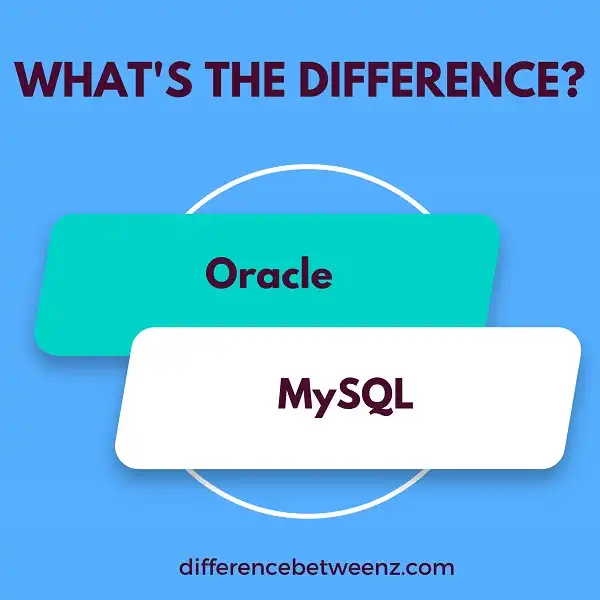Both Oracle and MySQL are Relational Database Management Systems (RDBMS), but they have some major differences. In this article, we will explore those differences and discuss which one might be a better fit for your needs.
What is Oracle?
Oracle is a database management system. Oracle is a Relational Database Management System (RDBMS), which means it stores data in the form of relations or tables. Oracle can be used to store and retrieve data from a single table or multiple tables. Oracle can be used to manage data in a variety of ways, including creating, updating, and deleting data. Oracle can also be used to query data, which means it can be used to find specific information stored in the database. Oracle is a powerful tool that can be used to manage large amounts of data. Oracle is also a scalable system, which means it can be used to manage data for small businesses or large enterprises. Oracle is an industry-leading database management system and is used by many companies worldwide.
What is MySQL?
MySQL is a free and open-source relational database management system. It is one of the most popular database systems in use on the web today. MySQL is known for its speed, reliability, and ease of use. It is used by many large websites, including Facebook, Twitter, and YouTube. MySQL is written in C and C++. It is available for all major operating systems. MySQL is named after co-founder Monty Widenius’s daughter, My.
Difference between Oracle and MySQL
- Oracle and MySQL are two of the most popular database management systems on the market. They both have their own distinct features and advantages that make them well-suited for different applications. Oracle is a powerful and versatile system that is used by many large organizations, while MySQL is a more lightweight option that is often favored by web developers. Here is a closer look at the key differences between Oracle and MySQL:
- Oracle is a proprietary database management system from Oracle Corporation. It offers a wide range of features and can be customized to meet the needs of even the most demanding applications. Oracle’s Enterprise Edition includes support for partitioning, data compression, and Oracle Real Application Clusters, which allow organizations to scale their database deployments to meet their growing needs. In addition, Oracle’s Advanced Security Option provides robust security features such as encryption and auditing. Oracle also offers a number of management tools to help businesses simplify the administration of their database deployments.
- MySQL, on the other hand, is an open-source database management system. It lacks some of the enterprise-class features offered by Oracle, but it is significantly less expensive to acquire and deploy. MySQL is often used as a web server because of its reliability and performance. In addition, its small footprint makes it ideal for use on resource-constrained devices such as embedded systems. Because it is open source, there is a large community of developers who contribute to the development of MySQL and provide support for users.
Conclusion
Oracle and MySQL are two of the most popular database management systems in use today. They both have their pros and cons, but which one is the best for your specific needs? That’s a question only you can answer after doing some research into what each system offers. We’ve given you a high-level overview of the differences between Oracle and MySQL, but there is much more to explore. Be sure to test out each system yourself to see which one works best for you.


